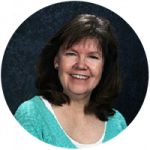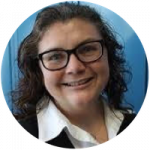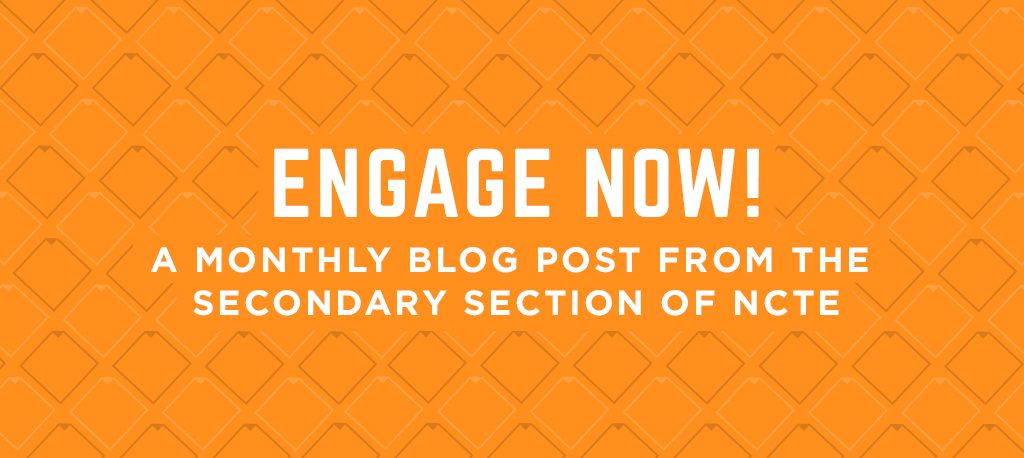Greetings in the Name of English Excellence!
My name is Shekema Silveri, and I am honored to serve as your current Secondary Section Steering Committee Chair. As the elected leadership of NCTE’s Secondary Section, your Steering Committee’s mission is to enhance “the professional lives of secondary English language arts educators and the quality of education of their students by providing multiple forums for significant dialogue on historical, current, and emerging topics of interest to secondary English language arts educators” (http://www.ncte.org/second). As such, we are delighted to announce the revamp of Engage Now!, the Secondary Section’s home for ongoing communication, collaboration, and celebration.
While this message offers the first of many opportunities Secondary Section members will have to hear from the hearts and minds of our leadership, we hope that each of you will lift your own voices in solidarity by sharing the wealth of wisdom and expertise that our section is known for. Submit proposals to present at Annual Convention. Publish an article in English Journal. Judge for an award. Run for an elected office. Come back home to the Secondary Section. Get involved. Engage now!
In Service,
Shekema Silveri, Secondary Section Steering Committee Chair
Meet your Secondary Section Steering Committee (alphabetical)

Joshua Cabat is English Department Chair at Roslyn High School (Roslyn Heights, NY). For the preceding decade, he taught English and film studies there. Previously, he taught in the New York City public high schools for over a decade. He is a founding member of both the Folger Shakespeare Library National Teacher Corps and the Brooklyn Academy of Music’s Education Advisory Panel and for nine years was the Teaching Artist for the Young Film Critics program at BAM. He is a cofounder of the New York City Student Shakespeare Festival and has been awarded three fellowships by the National Endowment for the Humanities. He has been a featured speaker at several national conferences and has published many articles on Shakespeare and film in publications such as English Journal.
Josh’s Insight: “Sapere Aude—Dare to be wise.”

Katie Ford teaches English at West Forsyth High School in Cumming, Georgia. She is a past chair of the Secondary Section Steering Committee.
 April Niemela is codirector for the Idaho Coaching Network and Region 2 Coach for the Idaho Department of Education. She began her career as an ELA teacher at Jenifer Junior High (Lewiston, ID), earning the distinction of Secondary Teacher of the Year (2012). A former Highland Education Association president, April has also served an instructional coach (Lewiston School District) and codirector, Northwest Inland Writing Project. Her current professional memberships include NCTE and ASCD. Her awards include Idaho 21st Century Master Teacher (2012), NCTA Fellow (Japan, 2003; China, 2006), and TGC Fellow (Kazakhstan, 2013). April has published in English Journal, Oregon English Journal, Education Matters @ETMA (in print), and Teaching with Heart, and she has presented at NCTE’s Annual Convention, NWP, and NW Regional Summit on Youth.
April Niemela is codirector for the Idaho Coaching Network and Region 2 Coach for the Idaho Department of Education. She began her career as an ELA teacher at Jenifer Junior High (Lewiston, ID), earning the distinction of Secondary Teacher of the Year (2012). A former Highland Education Association president, April has also served an instructional coach (Lewiston School District) and codirector, Northwest Inland Writing Project. Her current professional memberships include NCTE and ASCD. Her awards include Idaho 21st Century Master Teacher (2012), NCTA Fellow (Japan, 2003; China, 2006), and TGC Fellow (Kazakhstan, 2013). April has published in English Journal, Oregon English Journal, Education Matters @ETMA (in print), and Teaching with Heart, and she has presented at NCTE’s Annual Convention, NWP, and NW Regional Summit on Youth.
As the educational landscape continues to shift, it is essential that we honor the expertise of teachers and empower them to be teacher leaders, to both enact necessary change and to hold true to core beliefs. Through carefully selected NCTE section events, we not only impact in-the-trenches teaching, but we also serve as a positive influence in students’ lives.
April’s Wisdom: The biggest shift happening in secondary education right now is this grassroots movement toward the interactive, student-centered, and knowledge- and skills-focused event that learning should always be. We know that as we integrate greater opportunities for student-directed inquiry, we see increased curiosity, motivation, and desire to know and learn more. People like to talk about the next big thing—but teachers are beyond talking. Our secondary educators are the thinkers, innovators, and creators of this generation, and they are contributing now to our next iteration of education in this nation. How? Through intentional planning. The fusion of skillful scaffolding with the careful creation of structures, protocols, and processes create both the space and the opportunity for all students to create, to converse, and to contribute. Students have voice, they have purpose, and they know that they make a difference. And through literacy-infused classrooms, they learn how to sharpen their message, share it in ways that will be heard, and then shape the community around them. They carry this into the world beyond when they leave us. And this is the power of student-centered learning.
 Amanda Palmer began her career as a high school English teacher and will identify herself as such until her dying day. She currently serves as a Secondary Language Arts Coordinator in the Katy Independent School District (Katy, TX). She is a wife, mother, and runner who is in constant search of the perfect writing implement. Connect with her on Twitter @AmandaPalmer131.
Amanda Palmer began her career as a high school English teacher and will identify herself as such until her dying day. She currently serves as a Secondary Language Arts Coordinator in the Katy Independent School District (Katy, TX). She is a wife, mother, and runner who is in constant search of the perfect writing implement. Connect with her on Twitter @AmandaPalmer131.
The Digital Age has forever altered the field of education, requiring English teachers to learn new concepts and adjust practices while maintaining high standards. Teachers are charged with using innovative approaches to ensure all students become readers, writers, and thinkers capable of moving the world forward. It is our responsibility as an organization to support teachers, provide an avenue for their voices, and create opportunities to collaborate and improve the craft of language arts instruction.
Amanda’s Advice: “Treat a man as if he were what he ought to be and could be, he will become what he ought to be and could be” (Johann Wolfgang von Goethe).

Ann Marie Quinlan has taught English in grades 9 through 12 and served as an English department chair. She currently supervises student teachers. As a representative of CEL, she is focused on developing leadership and professional development opportunities for teachers at all stages of their careers.

Tiffany L. Rehbein is Assistant Chair for NCTE’s Secondary Section Steering Committee and serves on the Leadership Team for the Wyoming Writing Project. She has taught for more than 13 years and is currently the AVID Coordinator at her high school; she also serves as a district-level instructional coach for AVID. She is in her second year teaching a district course to secondary teachers, focusing on reading and writing strategies. She writes a Core Grammar blog where she shares writing and grammar activities with teachers. Tiffany is a recipient of the 2008 NCTE Leadership Development Award. Listening, sharing, and collaborating are essential skills for educators and leaders.
“I have made commitments to be an engaged professional, a critical thinker, and a lifelong learner. By presenting at NCTE, by serving as a leader in my school district and two different state affiliates, and by mentoring new leaders and teachers, I learn and grow as a professional. Among my teacher research interests are writing instruction; policy and governance; rural issues; content area literacy; and LGBTQ topics. I am dedicated to promoting a collaborative vision, advocate for informed literacy policies, and suggest initiatives across all grade levels.”
Tiffany’s Philosophy: “All students deserve a voice and a choice in their learning; we are there to create opportunities for students to succeed.”
 Shekema Silveri (Chair) is the founder of IFE Academy of Teaching & Technology, a blended and personalized K–12 homeschool collaborative in Atlanta, GA. With more than 12 years of classroom teaching experience, Shekema’s passion is exploring the reach of virtual learning as a means to bridge the digital divide, which resulted in being featured on CNN’s Perry’s Principles. She is an NCTE Early Career Leader of Color Award recipient (2008), an award for which she continues to serve as mentor.
Shekema Silveri (Chair) is the founder of IFE Academy of Teaching & Technology, a blended and personalized K–12 homeschool collaborative in Atlanta, GA. With more than 12 years of classroom teaching experience, Shekema’s passion is exploring the reach of virtual learning as a means to bridge the digital divide, which resulted in being featured on CNN’s Perry’s Principles. She is an NCTE Early Career Leader of Color Award recipient (2008), an award for which she continues to serve as mentor.
Shekema is a former OER Commons Fellow (2010), Georgia National Milken Educator (2011), and a member of NAEP’s 12th Grade Writing Level Setting Panel (2011). Her work has been published in The New York Times, Huffington Post, and ASCD’s InService. A longtime member and immediate past Secondary Section Representative-At-Large, this is Silveri’s second consecutive term on NCTE’s Executive Committee.
An ordained minister and certified life coach, Shekema enjoys helping others achieve self-actualization and success. She is the proud mother of four and the 1,500+ students who lovingly refer to her as “Mama Silveri.” Connect on all social media platforms @shekemasilveri.
At the end of the day, educational equity is never about throwing more money at a cancer that people still carry around in their hearts. Ignorance, the cause of inequities, must be rooted out and cleansed through the power of love for one another and love for this great nation that all of our ancestors built. It is ours to care for, and it exists for the sole purpose of helping us to better care for one another. That is why until we can begin to tell the truth and help heal the pain of centuries-old wounds, nothing I write here and nothing you teach in your classrooms will matter. That’s the truth and we all know it. Let us focus on the children and let the healing begin. (http://inservice.ascd.org/promoting-educational-equity/)
Shekema’s Sentiment: “’You are your best thing’ (Toni Morrison, Beloved). Believe it; manifest it.”
 Vaughn W. M. Watson is an assistant professor of English education at Michigan State University. Previously, Vaughn taught high school English for 12 years in New York City. Vaughn’s research examines how youth of color reframe changing mandates for student work, teacher practice, and civic learning and action in their creative and artistic artifacts and practices within and beyond school. Vaughn has published research findings in journals including American Educational Research Journal, Review of Research in Education, International Journal of Qualitative Studies in Education, Urban Education, and Literacy.
Vaughn W. M. Watson is an assistant professor of English education at Michigan State University. Previously, Vaughn taught high school English for 12 years in New York City. Vaughn’s research examines how youth of color reframe changing mandates for student work, teacher practice, and civic learning and action in their creative and artistic artifacts and practices within and beyond school. Vaughn has published research findings in journals including American Educational Research Journal, Review of Research in Education, International Journal of Qualitative Studies in Education, Urban Education, and Literacy.
Vaughn’s View: “Marketplace reform-based approaches to student work and teacher accountability delimit youth’s identities, and narrowly define what counts as academic literacy. My research and teaching examine interplays of literacy learning, reimagining identities and envisioning civic imaginaries for Black youth and youth of color across sociocultural contexts of English teaching and teacher education, hip-hop, civic learning and action, and participatory research methodologies. Civic imaginaries emerge as ways in which youth, teachers, and administrators envision youth as contributory participants across schools and communities.”

